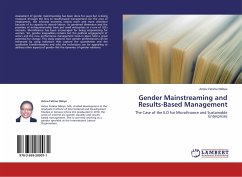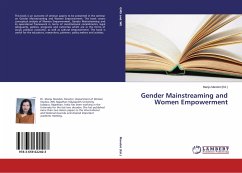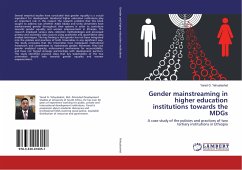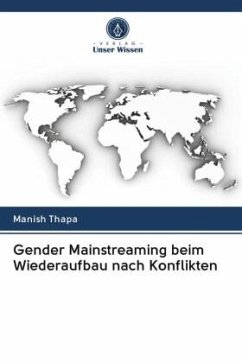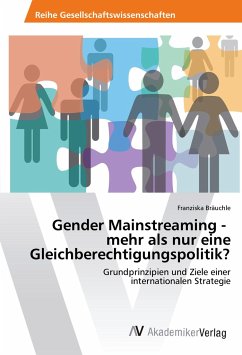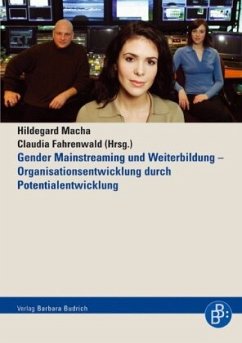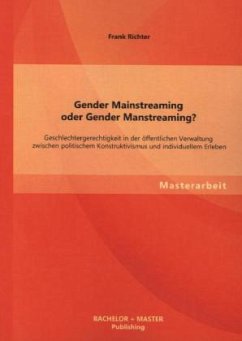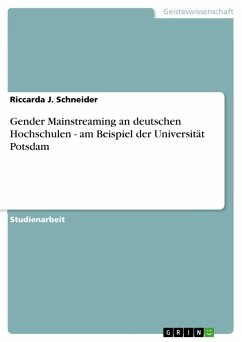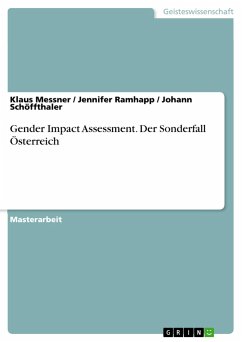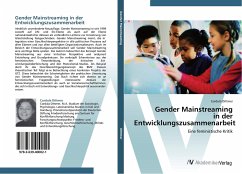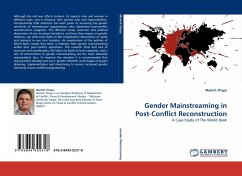
Gender Mainstreaming in Post-Conflict Reconstruction
A Case Study of The World Bank
Versandkostenfrei!
Versandfertig in 6-10 Tagen
32,99 €
inkl. MwSt.

PAYBACK Punkte
16 °P sammeln!
Although the civil war affects civilians, its impacts men and women in different ways, and it influence their gender roles and responsibilities. Comparatively little attention has been given to accessing the gender sensitivity of international organizations who implement post-conflict reconstruction programs. The different social, economic and political dimensions of war to peace transitions, and how they impact on gender relations, can shed some light on the complicated intersections of needs and interests in war torn societies. An examination of the policies of World Bank reveals that there ...
Although the civil war affects civilians, its impacts men and women in different ways, and it influence their gender roles and responsibilities. Comparatively little attention has been given to accessing the gender sensitivity of international organizations who implement post-conflict reconstruction programs. The different social, economic and political dimensions of war to peace transitions, and how they impact on gender relations, can shed some light on the complicated intersections of needs and interests in war torn societies. An examination of the policies of World Bank reveals that there is relatively little gender mainstreaming within their post-conflict operations. This research finds that lack of resources and coordination, the failure to build on local capacities, and a lack of commitment to gender mainstreaming are the main obstacles organizations face. To improve the situation it is recommended that organizations develop and use a gender checklist' at all stages of project planning, implementation and monitoring to ensure increased gender sensitivity in post-conflict programming.



